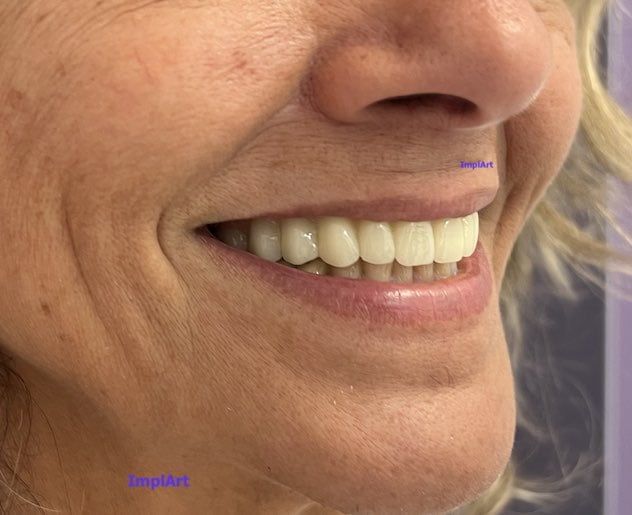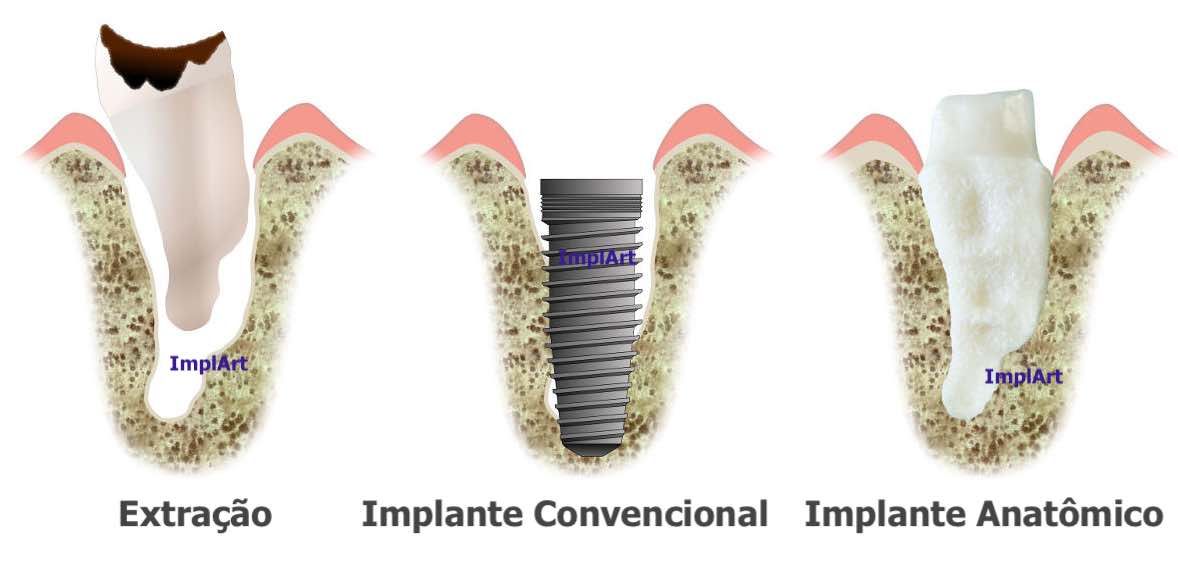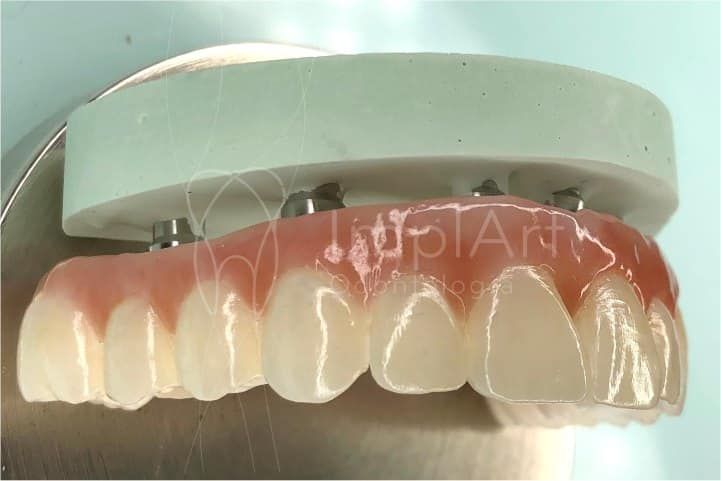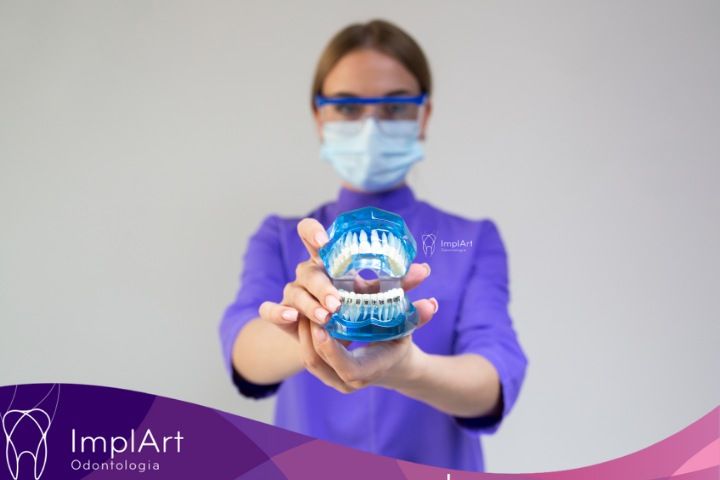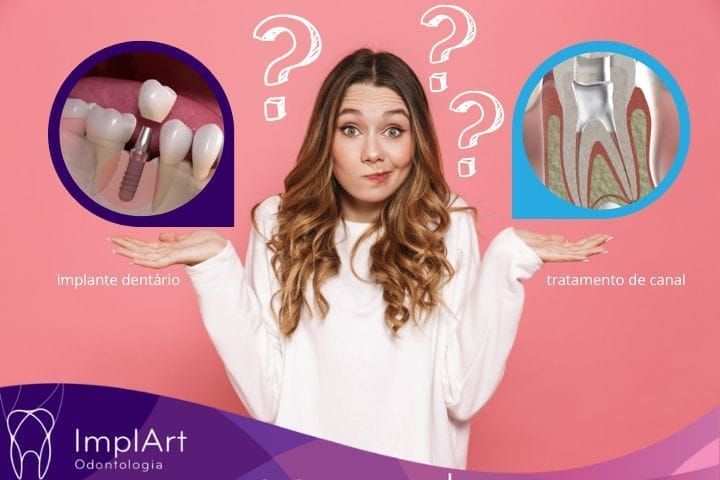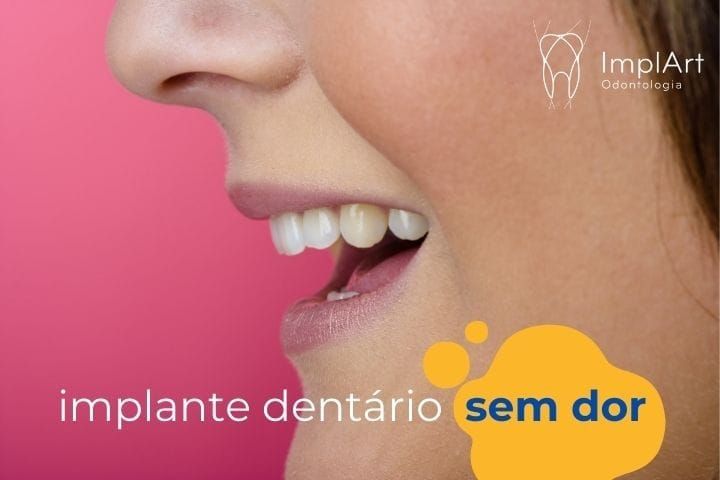Straumann Implants – Discover the best implants
Straumann implants are considered to be the best dental implants in the world. Based in Basel, Switzerland, Straumann is a world leader in implant dentistry and oral tissue regeneration.
With over 60 years of experience, Straumann has stood out for the excellence of its dental implants. Its products are recognized for their high quality and precision, providing long-lasting and aesthetically pleasing results. In addition, the company constantly invests in research and development, seeking to improve its implant technologies and techniques. This makes Straumann implants highly reliable and widely used by dental professionals around the world.
Straumann implants are considered the best dental implants in the world
Straumann implants advantages
In collaboration with leading clinics, research institutes and universities around the world, Straumann has been researching and developing high-techdental implants, surgical instruments, prosthetic components and biomaterials for oral tissue regeneration since 1974.
Straumann’s products and services are available in more than 70 countries. This standard of excellence certainly allows dentists to offer their patients less traumatic, less invasive treatments with predictable long-term results, both aesthetic and functional.
Straumann implants are manufactured with three basic requirements in mind: reliability (scientific research), simplicity (ease of use) and versatility (diverse applications).
The brand has an extensive range of implants with different sizes, diameters, angles, material composition and surface technologies, which considerably increases the possibilities for rehabilitation in various situations.
Straumann Implants Technologies
Regarding the level of implant positioning compared to the bone and gingiva:
- Straumann Soft Tissue Level Implants – higher tooth connection implants, at gingival level.
- Straumann Bone Level Implants – bone level implants with internal connection, with the aim of preserving bone and gum tissue, as well as favoring aesthetic results.
Regarding the material that makes up the implant and its healing time
- PURE Ceramic impl ants – pure white ceramic, zirconia implants that are mainly indicated for the anterior region of the arch. This provides a better aesthetic result for the treatment (estimated healing time = 2 months)*.
- SLActive implants – implants with surface technology that not only favors but also accelerates the osseointegration process (estimated healing time = 21 days – 1 month)*
- Roxolid SLA implants– implants made with titanium and zirconia reinforcement. They are small in size and highly resistant, making them ideal for patients with little bone volume (estimated healing time = 2 months)*.
* According to the manufacturer. Compliance with the deadline will depend on other factors such as the quality of the bone, the presence or absence of a bone graft, associated tooth extraction, infections at the site and insertion torque.

Regarding the type of connection between the implant and the dental prosthesis – type of platform
- Cone Morse connection – a locking system that favors better stability of the tooth and thus prevents it from loosening in the future. In addition, the cone-morse connection promotes a better seal in the implant-tooth connection, reducing infiltration and the number of bacteria around the implant. This effect is known as Platform Switch in scientific literature.
Straumann short implants
Straumann Standard Plus Short (SPS) implants are the shortest implants available on the market (they are only 4mm long) and are especially suitable for patients who, for whatever reason, find themselves with limited bone availability.

The lack of sufficient bone height in the mandible contraindicates the use of normal-length implants, unless this height is first reconstructed with bone grafting. The most common cases that compromise bone availability are:
- Severe mandibular bone resorption – very common in people who have been edentulous for many years;
- Poor bone quality; History of periodontal disease;
- Patients with other medical conditions, such as diabetes, osteoporosis, etc.
- Poor bone quality;
- History of periodontal disease;
- Patients with other medical conditions, such as diabetes, osteoporosis, etc.
- Severe mandibular bone resorption – very common in people who have been edentulous for many years;
- Poor bone quality;
- History of periodontal disease;
- Patients with other medical conditions, such as diabetes, osteoporosis, etc.
Short implants for difficult rehabilitation cases
These implants give the dentist more confidence to recommend them to patients who were not previously candidates to receive them. They also improve the predictability of treatment and the chances of acceptance.
Because these implants are very versatile for use in patients with compromised bone availability, the indication of bone grafting for vertical reconstruction can be dispensed with in many cases, offering greater peace of mind and speed of treatment. Standard Plus Short implants are indicated for:
- Fixed partial dentures/units with splint (one implant per unit);
- Cases of pontics in combination with a longer implant;
- Totally edentulous cases with at least two SPS implants in combination with two longer implants in the anterior region.
Straumann Standard Plus Short (SPS) implants are made from a titanium-zirconium alloy called Roxolid, which is proven to be stronger and better than pure titanium.
They also have a surface with SLActive technology which facilitates the start and acceleration of the osseointegration process. The indication of this or other dental implant models is subject to professional analysis of each case.
Straumann implants price
It’s common to be asked about the price of Straumann dentalimplants online. However, the price varies according to the clinical indication, the need for grafting or not, the number of implants used and the professional.
That’s why the price of a Straumann dental implant can only be estimated once the patient has been assessed in person. We are talking about the best brand of dental implants, accepted by patients who want the best for their dental treatment.

Tooth replacement in just 1 month with Straumann implants and CAD/CAM crown
In selected cases, it is possible to install a dental implant with a CAD/CAM-designed crown within 1 month. This is possible because the ImplArt Clinic works with Straumann Slactive implants.
These implants have surface technology that favors and accelerates healing and the biological interaction between implants and bone (osseointegration). It’s worth remembering that dental implant surgery doesn’t hurt at all, and that implants can be placed at the same time as the bad tooth is extracted.
Successful osseointegration is certainly what guarantees the stability of the implant to support the prosthesis and the masticatory load over the years. With normal implants, osseointegration usually takes place between 6 and 8 months, while with Straumann Slactive implants the healing time can be reduced to 3 to 4 weeks (21 days).
Temporary prosthesis for healing and aesthetics
During this healing period, the patient wears a temporary prosthesis so that they don’t lose their tooth. In the meantime, our prosthetics laboratory carries out the digital CAD/CAM design and makes the definitive prosthesis using 3D printers.
The project starts with a digital mold that is taken using an intraoral scanner, an intraoral camera that captures precise images inside the patient’s mouth. This way, with these three-dimensional images, it is possible to design a prosthesis with the best fit and perfect shape for each need.
The prosthesis is made using a 3D printer. It can be made of porcelain, a very resistant, aesthetic material comparable to natural human teeth, and with a metal or zirconia internal structure.
It is worth noting that the possibility of installing a dental implant and definitiveprosthesis in just one month is only possible in selected cases. An assessment by our specialized team will determine this possibility taking into account certain characteristics, such as the volume of bone available and the patient’s general state of health.
Fixed dental prosthesis for Straumann implants
The rapid installation of a dental implant with a permanent crown restores chewing ability, the aesthetics of your smile and the confidence to speak and smile. The decision on which implant is best for you will be made between you and your ImplArt dentist.
The advantages and disadvantages of each system will be presented so that the choice can be made carefully. ImplArt Odontologia relies on all this technology to promote the treatment of its patients.
Some smiles rehabilitated with fixed prostheses on dental implants









We have been accredited in the use of Straumann implants since 2002. Dr. Roberto Markarian, ImplArt’s scientific coordinator, is a member of the ITI – International Team for Implantology, an entity linked to Straumann that brings together the world’s best specialists for the development of new products and techniques. Service in English and Spanish.
If you have any questions, please contact us or make an appointment. We offer face-to-face and online consultations, especially for people living in other cities, states and countries.

 Agende sua consulta agora por WhatsApp
Agende sua consulta agora por WhatsApp